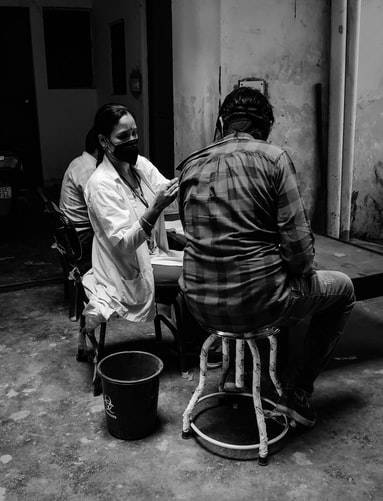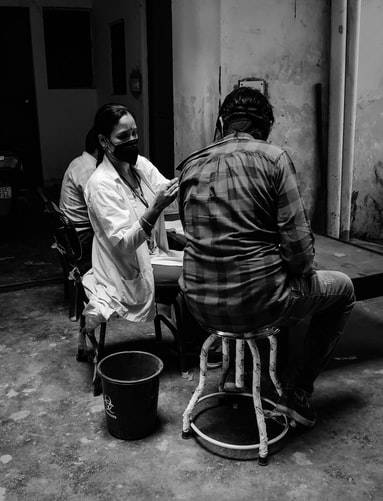An increasing number of studies suggest that many people who have previously contracted COVID-19 can receive just one dose of the COVID-19 vaccine without risks, according to Nature. The findings from these studies could help expand vaccine supplies that are insufficient for everyone in many countries, potentially leading to adjustments in vaccination policies in some countries. However, there remain questions about whether the results apply to all individuals and all vaccines, prompting Nature to survey expert opinions in the context of this report.
Studies indicate that individuals previously exposed to SARS-CoV-2 infection develop strong immune responses upon receiving the first dose, with limited benefits from a second dose. Those who have immunity from a previous infection usually exhibit an increase in antibody levels after receiving one dose, comparable to or often exceeding those of individuals who have never been infected and have received two doses of the vaccine.
Countries such as France, Germany, and Italy, among others, recommend only one dose of the vaccine for individuals with a healthy immune system and a confirmed previous COVID-19 infection. Many scientists who have studied immune responses to vaccination argue that such policies are a reasonable way to make the most of limited vaccine supplies in countries racing to vaccinate their citizens. Jordi Ochando, an immunologist at the Icahn School of Medicine at Mount Sinai in New York, stated, "Following the current vaccination schedule by giving two doses to previously infected individuals while millions are waiting for their first dose is nonsensical."
### Objective Reservations
However, it remains unclear to scientists whether one-dose programs for previously infected individuals could provide less-than-ideal protection for some individuals. It is also not clear whether such programs would be effective for all types of vaccines. Juliana Magri, an immunologist at the Del Mar Hospital Research Institute in Barcelona, Spain, remarked, "If a person has previously been infected, one dose is likely sufficient," but acknowledged that implementing such a theoretical hypothesis is "complicated."
### Disagreement on the Number of Doses
There is ample laboratory evidence that individuals previously infected with SARS-CoV-2 benefit from vaccination, leading the WHO and other public health agencies to recommend that they should be vaccinated. However, there is still less clarity on whether they should receive two doses. A research paper published in Nature on June 14 provides some of the latest evidence that one dose may be all that is necessary for COVID-19 survivors. A team of researchers from Rockefeller University in New York and elsewhere studied 26 cases of individuals infected early in the pandemic after receiving at least one dose of either the Pfizer or Moderna vaccine, both of which use mRNA technology.
The researchers analyzed participants' levels of neutralizing antibodies—powerful immune molecules that can prevent the virus from entering cells. Currently, the quantity and potency of a person's neutralizing antibodies are the best indicators for assessing whether that person is protected from infection and illness, although scientists are still working on studies aimed at determining whether antibody levels can serve as a realistic substitute for immune protection.
The research team also evaluated the levels of memory B cells in study participants, which recall pathogens and can quickly produce targeted antibodies if the body encounters a previously encountered infectious agent. Within a month or two of receiving vaccination, the levels of memory B cells among study participants increased by nearly tenfold on average, and neutralizing antibody levels rose by about 50-fold, indicating significant gains in individuals previously infected with the virus, regardless of whether they received one or two doses.
It was also found that just one dose of the vaccine resulted in levels equal to or higher than those achieved through two doses for individuals who had never been infected with COVID-19. Study co-author and virologist Theodora Hatsios noted, "It’s truly remarkable," expressing hopes that everyone’s antibody levels would be "like this."
### Memory Booster
The findings by Hatsios and her colleagues also suggest that the biological basis for the efficacy of a single dose in previously infected individuals over the following twelve months was that memory B cells were not static; instead, they spent a year developing, which enabled them to produce stronger and more diverse antibodies than those generated immediately upon infection. Other studies have confirmed these results, showing that some vaccinated individuals demonstrated that a single dose could stimulate the growth of both antibodies and T cells resistant to infection.
John Wherry, an immunologist at the Perelman School of Medicine in Philadelphia, stated that a second dose offers minimal benefits for individuals who have recovered from COVID-19. Although most research on this topic has focused on mRNA vaccines, preliminary evidence from studies conducted in the UK and India suggests that single-dose strategies may succeed if based on administering a dose of the AstraZeneca vaccine or using an adenovirus designed to elicit an immune response against SARS-CoV-2.
A study published last month, for instance, found that one dose of the AstraZeneca vaccine led to a significantly stronger immune response in healthcare workers in the UK who had previously contracted the virus, compared to their colleagues who had never been infected with COVID-19. Researchers noted that the results "support a one-dose vaccination strategy for previously infected individuals to increase coverage and protect a larger population."
Marketing expert Stacey Wood from the University of North Carolina said that the one-dose policy for those who have been infected could help overcome indifference or confusion regarding vaccination among those who have previously had an infection and may help convince them to get vaccinated. Reducing the number of doses along with all the associated side effects and concerns, and the time involved, could be appealing to some who are neutral about vaccination.
With additional vaccines available, offering a single dose to those who previously contracted the infection would eliminate the need to delay the second vaccine dose for individuals who have never been infected with COVID-19, according to eight researchers in an article published in May in the journal EBioMedicine. Thus, increasingly, countries and regions suffering from vaccine supply shortages will be able to adopt the scientists’ findings, at least for younger adults who do not have compromised immune systems.




